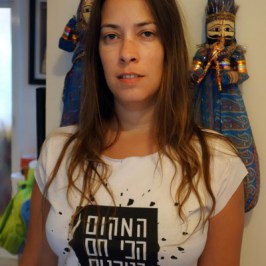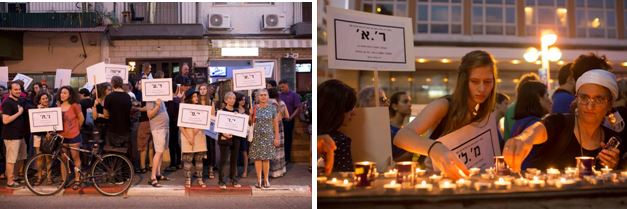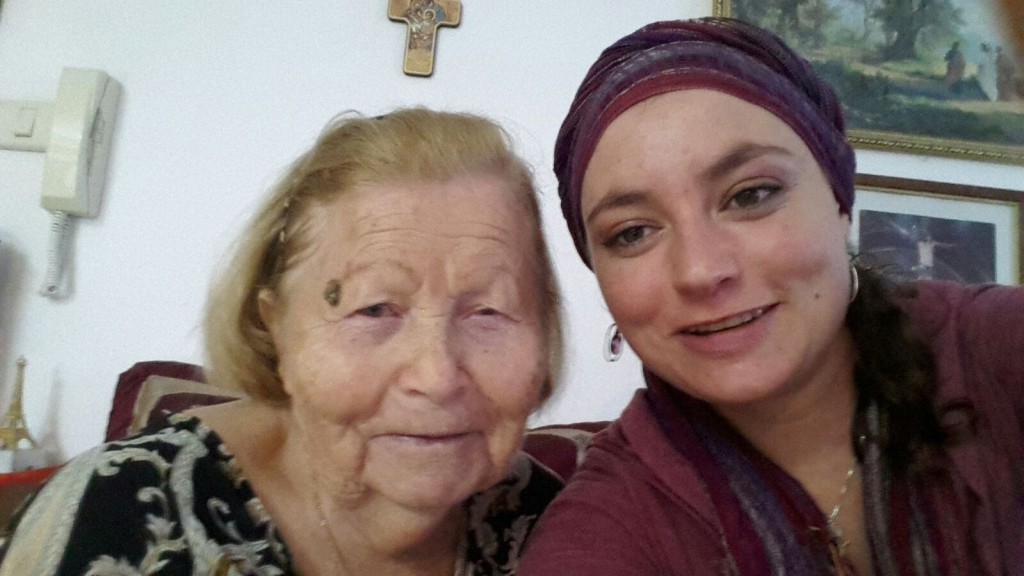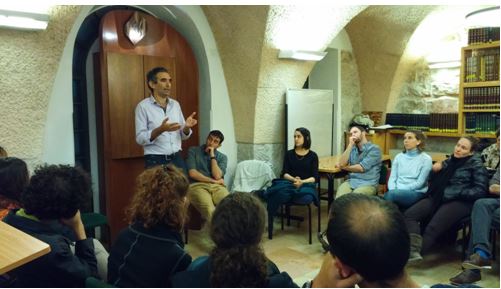Notorious Israeli human trafficker and pimp turned real estate mogul has been identified, again. Help the woman who was brave enough to speak his name a second time.
No one forced him to do it.
David (Dudu) Digmi, described by Tel-Aviv District Court Judge Chaled Kabub three years ago as “… the central figure in the largest network in Israel trafficking in women, with operations and connections overseas” got himself in legal hot water all on his own. As reported by “Haaretz”, “The network [uncovered in 2009] smuggled hundreds of young women from small villages and towns in Russia, Ukraine, Belarus, Moldavia and Uzbekistan after convincing them to come to Israel.” These unsuspecting women were lured by the promise of work in legitimate industries, many trafficked against their will. “In some of the cases the traffickers, including Digmi, used severe violence against the women,” as they were shepherded surreptitiously from country to country until arriving in Israel.
After his actions came to light and the case uncovering the network’s activities went to court in 2013, Digmi was neither jailed nor fined as his underlings were; instead he managed to slither away, becoming a state’s witness and police informant. Ironically, Digmi thrived as he made swift use of the spoils accumulated from his international trafficking and pimping, reinventing himself under another name, as a partner of a purportedly legitimate business — Urban Real Estate (URE).
No one forced her to do it.

Sharon Shpurer, former Haaretz journalist
Digmi continued to operate in this fashion, hiding in plain sight, until a courageous journalist, Sharon Shpurer, who had written a series of investigative reports for “Haaretz” and “TheMarker” relating to Digmi and his partners, exposed him on her Facebook page, calling URE “dubious” and urging the public not patronize the company due to its owner’s former crimes. Sharon was immediately hit with a NIS 1.68 million ($440,000) SLAPP suit filed by URE. Though such lawsuits – intended to censor, silence, intimidate and bully critics by burdening them with crippling legal action – are prohibited in some countries on the grounds that they impede freedom of speech, in Israel they are allowed.
While Digmi’s new name was subsequently released by Rotter, an online news forum, despite the continuing gag order forbidding its publication, Sharon and Sharon alone remains the target of a vicious libel lawsuit. Her courage and unwillingness to silently allow this man to accumulate additional wealth using ill-gotten gains derived from prostituting girls and women have placed Sharon in legal and physical peril. Her struggle is our struggle — the struggle for freedom of speech, and the struggle to protect victims of trafficking and prostitution.
What is TFHT doing?
Established in 2003, the Task Force on Human Trafficking and Prostitution (TFHT), a joint initiative of Israel NGO ATZUM-Justice Works and the law firm Kabiri-Nevo-Keidar, aims to eradicate human trafficking across and within Israel’s borders and ensure passage of Nordic Model legislation, the international standard designed to criminalize the purchase of sexual services and protect the prostituted person. Our devoted professionals and volunteers have worked relentlessly with the last four governments in pursuit of legislative change toward the eradication of prostitution and human trafficking and legal enforcement of laws already on the books.
TFHT’s recent and continuing efforts to legally shut down a Tel-Aviv strip club, a front for a brothel prostituting trafficked girls and women, have led to recent threats of violence directed anonymously against the Task Force. This pressure notwithstanding, KNK, as TFHT’s partner, is providing Sharon with pro bono legal representation. (Haaretz is unwilling to do so.) The latest court decision determining that URE’s name can be connected to Digmi is a huge legal win made by TFHT/KNK and a significant step in helping Sharon’s case.
What can you do?
- Sign the Hebrew petition, created by Israel’s Journalist Association, to help fund Sharon’s possible payout if she loses her libel suit. To date, 4,414 journalists, public figures, Members of Knesset, celebrities, and the general public have signed on to potentially pay a portion of her fine in the event that Sharon is financially penalized.
- Join TFHT’s Project 119 to help pass progressive legislation to criminalize the act of purchasing sexual services in Israel. Project 119 is an email campaign that matches individual MKs and Government Ministers with Israeli and Diaspora online activists. If you have five free minutes a week and want to help, Project 119 is for you!
- Advance TFHT’s work through your financial support. Funds are needed both in 2016 and in the coming year to help fund our legal, legislative, advocacy and educational efforts.
Thank you for acting today!
The Task Force on Trafficking and Prostitution
A project of ATZUM – Justice Works and Kabiri-Nevo-Keidar
development.atzum@gmail.com
PS: Look for news of TFHT’s upcoming event when we award Sharon Shpurer ATZUM’s Ot HaDror Award recognizing public opinion makers and leaders who strive to abolish modern-day slavery. Past recipients include Dalia Dorner, former Justice of the Supreme Court of Israel; Zahava Gal-On, Knesset Member (Meretz); Adv. Rachel Gershuni, Israel’s National Anti-Human Trafficking Coordinator; Orli Vilnai, Israeli journalist and Channel 10 anchor; and Orit Zuaretz, former Knesset Member.











